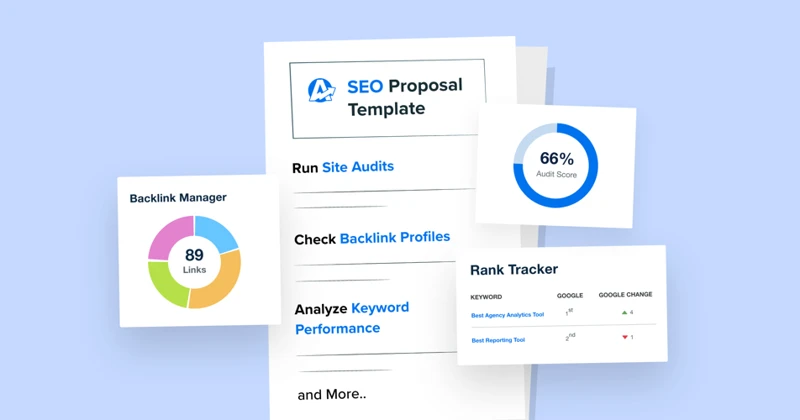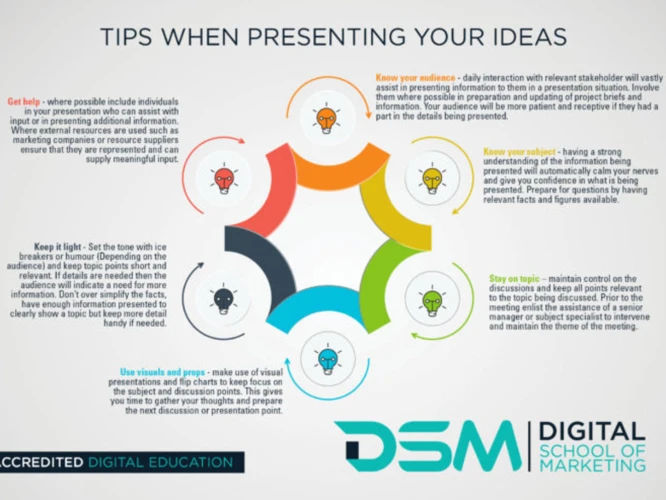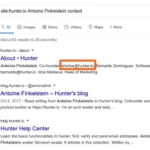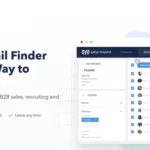1. What is the main goal of SEO?
Understanding the Importance of SEO

SEO, or Search Engine Optimization, is the practice of optimizing a website to improve its visibility and ranking on search engine results pages (SERPs). In today’s digital age, where consumers rely heavily on search engines to find products and services, having a strong online presence is crucial for businesses to succeed. SEO plays a vital role in driving organic traffic to a website, increasing brand visibility, and ultimately, generating leads and conversions. By optimizing various elements such as keywords, meta tags, site structure, and user experience, SEO helps search engines understand the relevance and value of a website’s content, resulting in higher rankings. Additionally, SEO is a cost-effective marketing strategy compared to other advertising methods, making it an attractive option for businesses of all sizes. Whether you’re a freelancer looking to capitalize on the growing demand for SEO services (/how-much-do-seo-freelancers-make/) or an entrepreneur planning to start your own SEO agency (/how-to-start-seo-agency/), understanding the importance of SEO is essential for online marketers. With the right SEO strategies and techniques, businesses can increase their online visibility, attract targeted traffic, and gain a competitive edge in the digital landscape. To learn more about how to write SEO content that ranks (/how-to-write-seo-content-that-ranks/), continue reading this comprehensive guide.
Researching Potential Clients

When it comes to pitching SEO services, conducting thorough research on potential clients is a crucial step. Understanding your clients’ needs, goals, and pain points is essential to crafting a persuasive pitch tailored specifically to their business. Start by identifying your target audience and niche, and then use tools like Google Analytics and keyword research to gain insights into their online presence and performance. Analyze their website’s SEO health, including factors like organic traffic, keyword rankings, and backlink profile. This will help you identify areas where they may be struggling and opportunities for improvement. Additionally, research their competitors to understand the competitive landscape and identify gaps that your SEO strategy can fill. By gathering this information, you can demonstrate your expertise and show potential clients the value you can bring to their business. Remember to keep track of your research findings and organize them in a client profile or spreadsheet for easy reference during the pitch process. By investing time in researching potential clients, you can position yourself as a knowledgeable and proactive SEO professional, increasing your chances of success in pitching your services.
Creating a Compelling Pitch

Creating a compelling pitch is a crucial step in successfully selling SEO services to potential clients. To create a pitch that captures their attention and convinces them of the value of SEO, it is important to first identify the client’s goals and pain points. This allows you to tailor your pitch to their specific needs and demonstrate how SEO can address their challenges and help them achieve their objectives. Showcasing SEO success stories is a powerful way to build credibility and demonstrate the effectiveness of your services. By presenting case studies and testimonials of previous clients who have achieved significant results through SEO, you can instill confidence and trust in your potential clients. Finally, presenting a customized strategy that outlines the specific actions and tactics you will employ to optimize their website and improve their online visibility is key to winning their business. This customized approach shows that you have thoroughly researched their industry and competition, and have a clear plan to help them achieve their desired outcomes. By following these steps and crafting a pitch that speaks to the client’s needs, showcases your expertise, and presents a tailored strategy, you will increase your chances of successfully pitching SEO to potential clients.
Identifying Client Goals and Pain Points
Identifying client goals and pain points is a crucial step in pitching SEO services effectively. To understand how SEO can benefit a potential client, it’s important to delve into their specific goals and pain points. This can be done through thorough research and analysis of their business, industry, and target audience.
One way to identify client goals is by conducting interviews or surveys to gather information directly from the client. This will help uncover their desired outcomes, such as increasing website traffic, improving lead generation, or boosting online sales. Additionally, analyzing the client’s current online presence and performance can provide insights into their pain points. This can include low website rankings, poor conversion rates, or a lack of brand visibility.
Another effective method is conducting keyword research to identify the client’s target audience and the keywords they are currently ranking for. By understanding the keywords that are relevant to their industry, products, or services, you can gain insights into their pain points. For example, if a client is struggling to rank for a specific keyword with high search volume, it indicates a pain point that can be addressed through targeted SEO strategies.
Once the client’s goals and pain points have been identified, it’s crucial to align your SEO pitch with their specific needs. Highlight how SEO can help them achieve their goals and overcome their pain points. By addressing their pain points and offering tailored solutions, you can demonstrate your expertise and value as an SEO professional. This will increase the chances of capturing their attention and securing their trust in your ability to deliver results.
Showcasing SEO Success Stories
Showcasing SEO success stories is a powerful way to demonstrate the effectiveness of your SEO strategies and build credibility with potential clients. When pitching SEO services, it’s important to provide concrete evidence of the results you have achieved for previous clients. By sharing success stories, you can highlight the impact of SEO on improving website visibility, increasing organic traffic, and driving business growth.
One effective way to showcase SEO success stories is by presenting before and after data. This can include metrics such as increased website traffic, higher search engine rankings, improved conversion rates, and revenue growth. By illustrating how your SEO efforts have directly contributed to these positive outcomes, you can instill confidence in potential clients and show them the potential value of investing in SEO.
In addition to data, it’s also beneficial to include testimonials or case studies from satisfied clients. These testimonials provide real-life examples of how your SEO strategies have helped businesses achieve their goals. Encourage your clients to share their experiences and the specific benefits they have gained from implementing your SEO recommendations. This social proof can greatly influence potential clients and help them visualize the potential impact of your services on their own businesses.
Consider incorporating visual elements such as charts, graphs, or screenshots to visually represent the improvements achieved through SEO. These visual aids can make your success stories more compelling and easier for potential clients to understand. They provide a tangible representation of the positive results that can be achieved with your SEO expertise.
Remember, when showcasing SEO success stories, it’s crucial to ensure that the examples and data you present are relevant to the specific industry or niche of your potential clients. Customizing your success stories to align with their goals and pain points will make them more relatable and convincing.
By effectively showcasing SEO success stories, you can demonstrate your expertise, build trust with potential clients, and increase the chances of winning their business.
Presenting a Customized Strategy
When presenting a customized strategy to potential clients, it’s important to showcase your expertise and demonstrate how your SEO services can specifically address their unique goals and pain points. Here are some key steps to follow when presenting a customized strategy:
1. Conduct a thorough website audit: Before presenting a strategy, it’s crucial to analyze the client’s website to identify any existing issues or areas for improvement. This could include technical SEO issues, on-page optimization gaps, or content gaps.
2. Keyword research and analysis: Research relevant keywords that align with the client’s industry, target audience, and goals. Use tools like Google Keyword Planner or SEMrush to identify high-volume keywords with low competition. Highlight the importance of targeting these keywords to drive organic traffic and improve search engine rankings.
3. Develop a content strategy: Content plays a pivotal role in SEO success. Outline a plan for creating high-quality, keyword-optimized content that will engage the target audience and attract organic traffic. This could include blog posts, articles, videos, or infographics.
4. On-page optimization: Explain the importance of optimizing on-page elements such as meta tags, headings, URLs, and internal linking. Highlight how these optimizations can improve search engine visibility and user experience.
5. Off-page optimization: Discuss the significance of off-page optimization techniques such as link building, social media marketing, and influencer outreach. Emphasize how these strategies can increase brand visibility, credibility, and organic rankings.
6. Local SEO strategy: If the client operates a local business, present a customized local SEO strategy. This may include optimizing Google My Business listings, obtaining local citations, and encouraging positive reviews.
7. Analytics and reporting: Explain how you will track and measure the success of the SEO campaign. Discuss the use of tools like Google Analytics to provide regular reports on website traffic, keyword rankings, and conversions.
By presenting a customized strategy that addresses the client’s specific needs and goals, you can demonstrate the value and effectiveness of your SEO services. This personalized approach will increase the likelihood of securing their trust and partnership. Remember to adapt your strategy based on the client’s industry, target audience, and competition to ensure the best possible results.
Delivering the Pitch

When it comes to delivering the pitch for SEO services, effective communication techniques are paramount. One important aspect is clearly identifying client goals and pain points. By understanding what the client wants to achieve and the challenges they are facing, you can tailor your pitch to address their specific needs. Additionally, showcasing SEO success stories can help build credibility and demonstrate the value of your services. Sharing real-life examples of how SEO strategies have led to increased traffic, higher rankings, and improved conversions can make a compelling case for why the client should invest in SEO. Presenting a customized strategy is also crucial to winning over potential clients. By analyzing their website, conducting keyword research, and identifying opportunities for improvement, you can propose a tailored plan that aligns with their goals. Ultimately, delivering a successful pitch requires building credibility and trust, effectively addressing objections, and clearly outlining the benefits of investing in SEO.
Effective Communication Techniques
When it comes to pitching SEO services, effective communication techniques are crucial for conveying your message and building a strong rapport with potential clients. Here are some key techniques to keep in mind:
1. Active listening: Pay close attention to your clients’ needs, goals, and pain points. Take notes and ask clarifying questions to ensure you fully understand their requirements.
2. Clear and concise language: Avoid using technical jargon or industry-specific terms that may confuse your clients. Use simple and easy-to-understand language to explain the benefits and value of SEO.
3. Tailor your message: Customize your pitch to address the specific concerns and objectives of each client. Highlight how SEO can help them achieve their goals and overcome their pain points.
4. Visual aids: Utilize visual aids such as graphs, charts, and case studies to present data and statistics that support your claims. Visuals can help clients visualize the potential impact of SEO on their business.
5. Storytelling: Paint a compelling picture of how SEO has helped previous clients achieve success. Share success stories and testimonials to demonstrate the tangible results that can be achieved through effective SEO strategies.
6. Confidence and enthusiasm: Show confidence in your abilities and convey enthusiasm for the potential partnership. Clients are more likely to trust and engage with someone who is passionate about what they do.
7. Two-way communication: Encourage clients to ask questions and provide feedback throughout the pitch. This demonstrates that you value their input and are committed to their success.
Remember, effective communication is a two-way street. Listen actively, tailor your message, and utilize visual aids and storytelling techniques to engage potential clients and convey the value of SEO. By employing these communication techniques, you can build credibility and trust, increasing the chances of securing a successful pitch.
Building Credibility and Trust
Building credibility and trust is crucial when pitching SEO services to potential clients. As an online marketer, it’s essential to establish yourself as an industry expert and gain the trust of your prospects. One way to build credibility is by showcasing your past successes and client testimonials. Highlight specific SEO campaigns you’ve worked on and provide measurable results, such as increased website traffic, higher search engine rankings, or improved conversion rates. These success stories serve as proof of your expertise and demonstrate the value you can bring to your clients. Additionally, it’s important to emphasize your qualifications and certifications in SEO. Mention any industry recognition or awards you’ve received, as this can further enhance your credibility. Another way to build trust is by providing a transparent and honest approach. Clearly explain your SEO strategies and tactics, and ensure your potential clients understand the process and timeline involved. Address any concerns or questions they may have and provide realistic expectations. By being transparent and honest throughout the pitching process, you’ll establish trust with your prospects and increase the likelihood of securing their business. Remember, credibility and trust are vital when it comes to convincing potential clients to entrust their SEO needs to you, so make sure to prioritize building and maintaining these elements throughout your pitch.
Handling Objections
Handling objections is a crucial skill when pitching SEO services to potential clients. It is common for clients to have concerns or reservations about investing in SEO, and it’s important to address these objections effectively to build trust and credibility. Here are some strategies for handling objections during the pitch:
1. Listen actively: When a client raises an objection, listen carefully to their concerns without interrupting. This shows that you value their input and are genuinely interested in addressing their objections.
2. Empathize with their concerns: Acknowledge and validate the client’s objections. Let them know that you understand their worries and that it’s natural to have reservations when investing in a new marketing strategy.
3. Provide evidence and data: Back up your claims with concrete evidence and data. Use case studies, success stories, or industry statistics to demonstrate the effectiveness of SEO in driving results for businesses similar to theirs.
4. Address specific objections: Tailor your response to address the client’s specific concerns. If they are worried about the cost of SEO, explain the long-term benefits and return on investment (ROI) they can expect. If they are concerned about the time it takes to see results, explain the gradual nature of SEO and how it builds sustainable organic traffic over time.
5. Offer solutions: Propose solutions or compromises that alleviate the client’s concerns. For example, if budget is an issue, you could suggest starting with a smaller-scale SEO campaign and gradually scaling it up as they see results.
6. Showcase your expertise: Demonstrate your expertise and knowledge in the field of SEO. Share success stories and client testimonials to build credibility and trust.
Remember, objections are an opportunity to address concerns and build a stronger case for your SEO services. By listening attentively, empathizing with clients, providing evidence, and offering solutions, you can effectively handle objections and increase the chances of closing the deal.
Follow-Up and Closing
Once you have delivered your pitch and engaged with potential clients, the next crucial step is follow-up and closing. Following up is essential in maintaining communication and ensuring that your pitch remains at the forefront of the client’s mind. It shows your dedication and professionalism, while also giving you the opportunity to address any further questions or concerns. A prompt and personalized follow-up email or phone call can go a long way in building trust and solidifying your credibility. During the follow-up, it is important to reiterate the key points discussed during the pitch and emphasize how your customized strategy can benefit the client’s business. Additionally, this is the perfect time to negotiate deals and discuss pricing options, highlighting the value that your SEO services can bring to their online presence. Finally, once all the details have been ironed out, it’s time to close the deal. This involves providing a clear proposal or contract that outlines the scope of work, timelines, and deliverables. By effectively following up and closing the deal, you can turn potential clients into long-term partners and secure successful collaborations in the world of SEO.
Importance of Follow-Up
The importance of follow-up cannot be overstated when it comes to pitching SEO services. Following up with potential clients shows your dedication, professionalism, and commitment to their success. It demonstrates that you value their time and are genuinely interested in helping them achieve their goals. Additionally, follow-up allows you to address any concerns or questions the client may have had after the initial pitch, further building trust and credibility.
To effectively follow up with potential clients, it is important to have a systematic approach. Consider using a customer relationship management (CRM) system to keep track of your interactions and set reminders for follow-ups. This ensures that no leads slip through the cracks and helps you stay organized. When following up, personalize your communication and reference specific points from the initial pitch to show that you were actively listening and understand their needs.
Another key aspect of follow-up is timing. Be mindful of not being too pushy or aggressive, but also avoid waiting too long before reaching out. Strike a balance by following up within a reasonable timeframe, such as a few days to a week after the initial pitch. This demonstrates your enthusiasm and interest without coming across as desperate.
During the follow-up, be prepared to address any objections or concerns the client may have. Anticipate potential roadblocks and have well-thought-out responses ready. This shows that you have taken the time to understand their specific challenges and have a tailored solution for them.
The importance of follow-up in pitching SEO services cannot be emphasized enough. It allows you to nurture relationships, address concerns, and ultimately increase your chances of closing the deal. By incorporating effective follow-up strategies into your pitching process, you can set yourself apart from the competition and establish long-term partnerships with clients.
Negotiating Deals
Negotiating deals is a critical aspect of pitching SEO services to potential clients. Here are some key strategies to consider when entering into negotiations:
1. Prepare in advance: Before entering into negotiations, it’s important to do your homework. Research the client’s industry, competitors, and current SEO performance. This will help you identify areas where your services can add value and give you leverage during negotiations.
2. Clearly define scope and deliverables: Clearly outlining the scope of work and deliverables is essential for successful negotiations. Be specific about the SEO services you will provide, such as keyword research, on-page optimization, link building, and reporting. Set realistic expectations and discuss timelines to ensure both parties are on the same page.
3. Highlight your unique selling points: During negotiations, emphasize what sets you apart from the competition. Showcase your expertise, track record of success, and any unique strategies or tools you bring to the table. This will help build confidence and demonstrate the value you can provide.
4. Be flexible and open to compromise: Negotiations often involve give and take. Be open to compromises that align with the client’s goals while still maintaining the integrity of your services. This could include adjusting pricing, offering additional services, or modifying the timeline to accommodate the client’s needs.
5. Focus on long-term value: Emphasize the long-term benefits of SEO and the potential return on investment (ROI) for the client. Explain how SEO can drive organic traffic, increase conversions, and boost revenue over time. By highlighting the value of your services beyond the immediate cost, you can justify your pricing and build trust with the client.
6. Document agreements: Once negotiations are complete, it’s crucial to document the agreed terms in a written contract. This protects both parties and ensures there is a clear understanding of expectations, timelines, and deliverables.
Remember, successful negotiations require effective communication, active listening, and a willingness to find mutually beneficial solutions. By following these strategies, you can navigate the negotiation process with confidence and secure profitable deals for your SEO services.
Closing the Deal
Closing the deal is the final and crucial step in the SEO pitching process. It is the moment when all the hard work and effort put into crafting a compelling pitch pays off. To successfully close the deal, it is essential to have effective negotiation skills and a thorough understanding of the client’s needs and budget. One strategy to consider is offering flexible pricing options that align with the client’s budget and goals. This can include different service packages or payment plans. Additionally, providing a clear and concise proposal that outlines the deliverables, timeline, and expected results can help build trust and confidence. During the closing stage, it is important to address any remaining objections or concerns the client may have. This can be done by providing additional information, case studies, or testimonials that showcase the success of previous SEO campaigns. Finally, once all objections have been addressed, it’s time to seal the deal. This can be done by verbally confirming the agreement and sending a formal contract or agreement for the client to sign. By ensuring a smooth and professional closing process, online marketers can secure long-term partnerships and set the stage for successful SEO campaigns.
Conclusion
In conclusion, understanding how to effectively pitch SEO is a crucial skill for online marketers. SEO plays a vital role in improving a website’s visibility, driving organic traffic, and generating leads and conversions. By researching potential clients, creating a compelling pitch, delivering it effectively, and following up strategically, you can increase your chances of success in pitching SEO services. Remember to identify client goals and pain points, showcase SEO success stories, and present a customized strategy tailored to each client’s specific needs. Effective communication, building credibility and trust, and handling objections are key components of a successful pitch. Follow-up is essential in maintaining a relationship with potential clients and negotiating deals. By closing the deal, you can solidify your partnership and begin implementing your SEO strategies to help clients achieve their goals. In the ever-evolving landscape of online marketing, SEO remains a powerful tool for businesses to thrive. By mastering the art of pitching SEO, you can position yourself as an invaluable asset to clients and propel your own success as an online marketer. So, start implementing the strategies outlined in this comprehensive guide and watch your SEO pitches soar to new heights.
Frequently Asked Questions
FAQs about Understanding the Importance of SEO:
1. What is the main goal of SEO?
The main goal of SEO is to improve a website’s visibility and ranking on search engine results pages (SERPs), ultimately driving organic traffic and increasing conversions.
2. How does SEO benefit businesses?
SEO benefits businesses by increasing their online visibility, attracting targeted traffic, and generating leads and conversions. It also helps establish brand authority and credibility.
3. Is SEO only important for large businesses?
No, SEO is important for businesses of all sizes. It provides a cost-effective marketing strategy that can help small businesses compete with larger competitors by improving their online presence.
4. How long does it take to see results from SEO?
The timeline for seeing results from SEO can vary depending on several factors, such as the competitiveness of the industry, the website’s current state, and the effectiveness of the SEO strategies implemented. It typically takes several months to see significant improvements, but ongoing optimization is necessary for long-term success.
5. Are keywords still important for SEO?
Yes, keywords are still an important aspect of SEO. However, the focus has shifted from keyword stuffing to creating high-quality, relevant content that naturally incorporates targeted keywords.
6. Does SEO only involve optimizing website content?
No, SEO involves optimizing various elements both on and off the website, including keywords, meta tags, site structure, backlinks, user experience, and mobile-friendliness.
7. How does SEO compare to paid advertising?
While paid advertising can provide immediate results, SEO offers long-term benefits and a higher return on investment (ROI). SEO helps businesses build organic visibility and attract targeted traffic without ongoing advertising costs.
8. Can SEO help improve local search rankings?
Yes, SEO can significantly improve local search rankings by optimizing for local keywords, creating location-specific content, and managing online reviews and directories.
9. Is it necessary to hire an SEO professional?
While it is possible to learn and implement SEO strategies on your own, hiring an SEO professional can save time and ensure the use of best practices. They can provide expertise, industry knowledge, and customized strategies for optimal results.
10. How does SEO impact user experience?
SEO and user experience go hand in hand. By optimizing a website’s structure, load times, navigation, and content, SEO enhances user experience, leading to higher engagement, lower bounce rates, and increased conversions.







